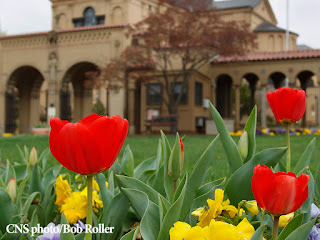85. God has written a precious book, “whose letters are the multitude of created things present in the universe”.[54] The Canadian bishops rightly pointed out that no creature is excluded from this manifestation of God: “From panoramic vistas to the tiniest living form, nature is a constant source of wonder and awe. It is also a continuing revelation of the divine”.[55] The bishops of Japan, for their part, made a thought-provoking observation: “To sense each creature singing the hymn of its existence is to live joyfully in God’s love and hope”.[56] This contemplation of creation allows us to discover in each thing a teaching which God wishes to hand on to us, since “for the believer, to contemplate creation is to hear a message, to listen to a paradoxical and silent voice”.[57] We can say that “alongside revelation properly so-called, contained in sacred Scripture, there is a divine manifestation in the blaze of the sun and the fall of night”.[58] Paying attention to this manifestation, we learn to see ourselves in relation to all other creatures: “I express myself in expressing the world; in my effort to decipher the sacredness of the world, I explore my own”.[59]
[54] JOHN PAUL II, Catechesis (30 January 2002),6: Insegnamenti 25/1 (2002), 140.
[55] CANADIAN CONFERENCE OF CATHOLIC BISHOPS, SOCIAL AFFAIRS COMMISSION, Pastoral Letter You Love All that Exists… All Things are Yours, God, Lover of Life” (4 October 2003), 1.
[56] CATHOLIC BISHOPS’ CONFERENCE OF JAPAN, Reverence for Life. A Message for the Twenty-First Century (1 January 2000), 89.
[57] JOHN PAUL II, Catechesis (26 January 2000), 5: Insegnamenti 23/1 (2000), 123.
[58] ID., Catechesis (2 August 2000), 3: Insegnamenti 23/2 (2000), 112.
[59] PAUL RICOEUR, Philosophie de la Volonté, t. II: Finitude et Culpabilité, Paris, 2009, 216.
© LIBRERIA EDITRICE VATICANA.


